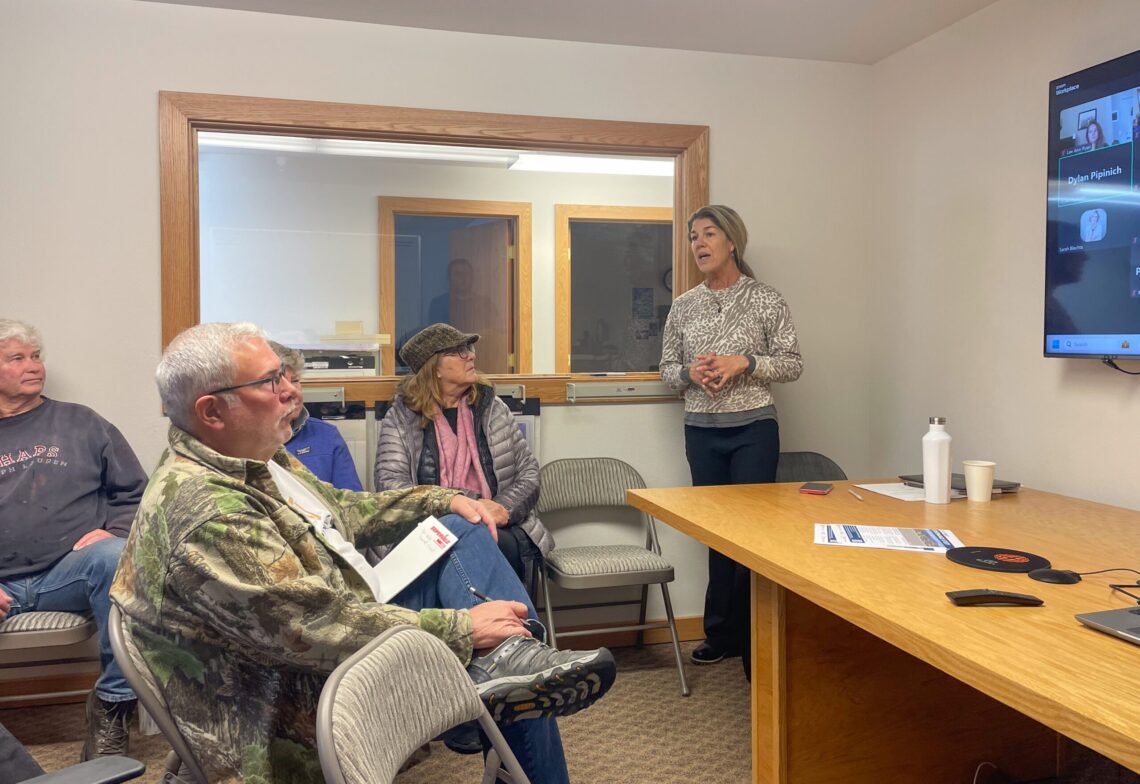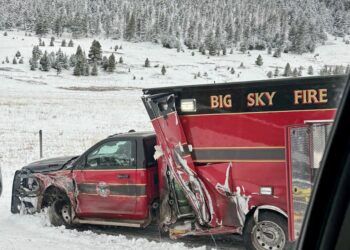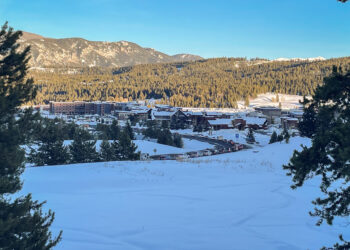By Jack Reaney SENIOR EDITOR
The taxpayer-funded study of potential local governance options for Big Sky, potentially including incorporation, continues to engage the public and emphasize its purpose: not to provide recommendations, but to outline options for the citizens who will ultimately choose Big Sky’s path forward.
After first engaging the public in a September meeting, the study team added three smaller “Tuesday Series” meetings with the goal of sharing initial findings and continuing to hear local input. Roughly 50 community members attended the three meetings, and the final meeting was held on Nov. 12.
Fourteen locals squeezed into an exceptionally small room in the Big Sky County Water and Sewer District’s basement, adding to the informal and conversational feeling of the one-hour meeting.
“The main objective for today, and the entire Tuesday Series, is to hear from you,” said Meg O’Leary, president of M2O Group and informally self-titled “VP of community and stakeholder outreach” for the study. “It’s really important to the study, to the consulting team, to the community that we hear from you, you get questions out… and we understand more about each other.”
O’Leary said she’s practically begging some locals to schedule one-on-one interviews with her, and she’s especially hoping to hear from folks that might not typically attend local government meetings or may lack a public voice. She has been thrilled to hear from a few people she had not met before.
“Those kinds of one-on-ones are really informative and I’m getting people saying things that they wouldn’t in a public meeting,” O’Leary said.
Determining community values
Dylan Pipinich, land planner for the firm leading the study, WGM Group, said the first phase has been trying to understand how the community lives and operates.
Land planners typically work on projects with a desired outcome, starting with a known answer and reverse-engineering it through policy and government changes.
“This is the exact opposite,” he said. “This question is: the process needs to dictate the outcome.”
Pipinich said the study must ask detailed questions with the hopes of creating detailed answers in the form of specific scenarios. He said the team is aware of Big Sky’s past incorporation discussions, which many remember as being contentious and stopped by specific obstacles.
He spoke about one common example: how local laws surrounding liquor licenses could be affected by governance changes. He said the study team is compiling a summary report outlining the specific possibilities of what’s legal in Montana, and the community outreach has been helpful in identifying potential snags for his team to investigate.
“We’re hoping to answer those questions that definitely have come up in the past, plus all the ones that are coming up in the engagement that we’re doing now,” Pipinich said. “Because there’s more.”
He said the scenarios need to resonate with the community, and study team has been making “extensive outreach” to make sure the study asks the right questions.
“It’s really a community decision and it’s gonna be a vote, and it’s gonna be up to you,” Pipinich said. “But as long as you’re informed in making that decision—our goal is to help you make the right one. You decide what that is.”
O’Leary asked one attendee, Mike Kilbury, about his thoughts on the study. Kilbury commented on the scenario-based approach.
“I’m thinking that it’s overwhelming, is what I’m thinking. It’s Jenga. You move one piece, and 10 others fall out,” Kilbury said. Pipinich said that’s a good analogy—however, Pipinich said in September that the goal is to avoid interdependent if-then statements, instead providing detailed assumptions to outline expected outcomes.
The study team wants scenarios to be driven by community values. Patrick Griffith, owner of Blue Moon Bakery, said he’s concerned by whose values will be represented.
“Are we talking Lone Mountain Land Company’s values? Or the guy working the dishwasher’s values,” Griffith asked. “Like, there’s a lot of different people pushing for a lot of different things in this town, and they don’t always fit together well. So, whose values?”
O’Leary asked how Griffith would recommend the study balances those values. He chuckled.
“Well, you can go with your heart, or you can follow the money. Which one do you want to do?”
The study team plans to hold its next large public meeting at the end of January, in which they will discuss the values and scenarios identified this fall.













